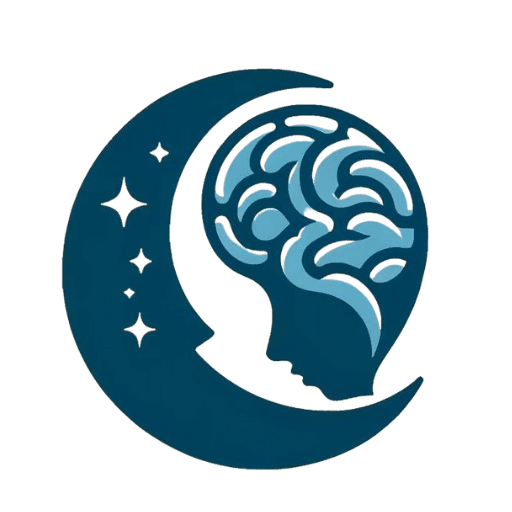As I navigated the early stages of motherhood, I found myself amid a fog that seemed to cloud my once sharp memory and quick decision-making abilities. This experience, is often playfully referred to as “Mommy Brain”.
Have you ever walked into a room and immediately forgotten your reason for being there?
or
Or perhaps you’ve been in a mad rush looking for your phone or keys, only to realize they’ve been in your hand the whole time?
If any of these scenarios sound familiar, you might be experiencing what’s commonly known as “mommy brain.”
The Science Behind “Mommy Brain”
“Mommy Brain” is not just a myth but a reflection of significant hormonal adjustments and brain remodeling that occur after childbirth.
Studies have revealed that during pregnancy and the postpartum period, women experience changes in brain areas crucial for memory, decision-making, and emotional processing.
Hormonal Changes: The Chemistry of ‘Mommy Brain’
The postpartum period is characterized by a dramatic shift in hormones, with a sharp decline in estrogen and progesterone levels, and an increase in prolactin and oxytocin. These changes can affect mood and cognitive function, contributing to the sensations associated with “Mommy Brain.”
Neurological Changes Behind the ‘Mommy Brain’ Phenomenon
Research using MRI scans reveals that the brain undergoes significant changes during motherhood, especially in areas related to understanding others, feeling empathy, and handling anxiety, such as the prefrontal cortex, hippocampus, and amygdala. A key study published in “Nature Neuroscience” (Hoekzema et al., 2017) shows these changes, suggesting they help mothers care better for their children.
The hippocampus, crucial for memory and finding the right words, gets smaller. This reduction might be why some moms experience forgetfulness or have trouble remembering words (Hoekzema et al., 2017).
Meanwhile, the amygdala, which helps produce emotions, gets larger. This increase could explain why moms might feel more emotional, tear up more easily, or feel overwhelmed by stress, affecting their social life (Barba-Müller,2019).
The prefrontal cortex, responsible for planning and decision-making, also reduces in size. This change might lead to challenges in organizing tasks or forgetting the purpose of entering a room (Hoekzema et al., 2017).
Sleep Disruption: the Connection Between Rest and “Mommy Brain”
Caring for a newborn often means less sleep for new moms, which can make it harder to think clearly and manage emotions. When moms don’t get enough sleep, it affects important parts of the brain. The prefrontal cortex, which helps with planning and decision-making, doesn’t work as well. This can make daily tasks and parenting feel more difficult, leading to struggles with time management, decision-making, and staying organized.
Sleep loss also impacts the hippocampus, the part of the brain that helps us remember things. This can lead to forgetfulness and trouble remembering words or finishing tasks, shaking a mom’s confidence in her parenting skills and raising her stress and anxiety.
Emotionally, lack of sleep makes the amygdala, which controls our emotions, more sensitive to negative feelings. This means new moms might feel more irritable, anxious, and stressed.
Actionable Tips for Managing “Mommy Brain”

Understanding “Mommy Brain” can give new moms strategies for this challenging, yet rewarding time. Here are straightforward tips to manage its effects.
Prioritize Sleep
Try to sleep when your baby sleeps, if you can. This doesn’t work for everyone, especially if you’re anxious or your baby’s schedule is unpredictable. If you’re finding it hard to rest, consider seeking support or using relaxation tools. They can be a big help in finding peace during the chaos of new parenthood.
Seek Support
It’s okay to ask for help from your partner, family, or friends. Sharing baby care and household tasks can give you much-needed rest. Remember, accepting help isn’t a sign of weakness. It’s smart and benefits your baby by building strong relationships with others. You don’t have to do everything alone.
Stay Organized
Lists, calendars, and apps can be lifesavers. They act as your external memory, helping you keep track of tasks and appointments.
Practice Mindfulness and Self-care
Activities like yoga, meditation, or gentle exercise can help you relax and reduce stress. They improve your focus and mental health.
Consult Healthcare Providers
If you’re struggling with mood, sleep, or thinking clearly, talk to a healthcare professional. Getting help is a strength. It’s crucial for your well-being and ensures you’re at your best for your baby and yourself.
If you’re struggling to find a good night’s sleep even after getting some support from families and friends, consider exploring our Adult Sleep Package. It’s designed to help new parents like you navigate and improve sleep patterns during this new chapter, making sure you’re well-rested and ready to enjoy the moments that matter most.
Conclusion
The journey through motherhood is one of profound change, not just physically but mentally and emotionally. Remember, “Mommy Brain” is a sign of your brain’s incredible transformation as you bond with and care for your baby. Embrace it as a badge of honor and a reminder of your strength and adaptability during this special time in your life.
References
- Hoekzema, E., Barba-Müller, E., Pozzobon, C., et al. (2017). Pregnancy leads to long-lasting changes in human brain structure. Nature Neuroscience, 20(2), 287–296.
- Barba-Müller, Erika et al. “Brain plasticity in pregnancy and the postpartum period: links to maternal caregiving and mental health.” Archives of women’s mental health vol. 22,2 (2019): 289-299. doi:10.1007/s00737-018-0889-z
- Feldman, R., Weller, A., Zagoory-Sharon, O., & Levine, A. (2007). Evidence for a neuroendocrinological foundation of human affiliation: Plasma oxytocin levels across pregnancy and the postpartum period predict mother-infant bonding. Psychological Science, 18(11), 965–970.

